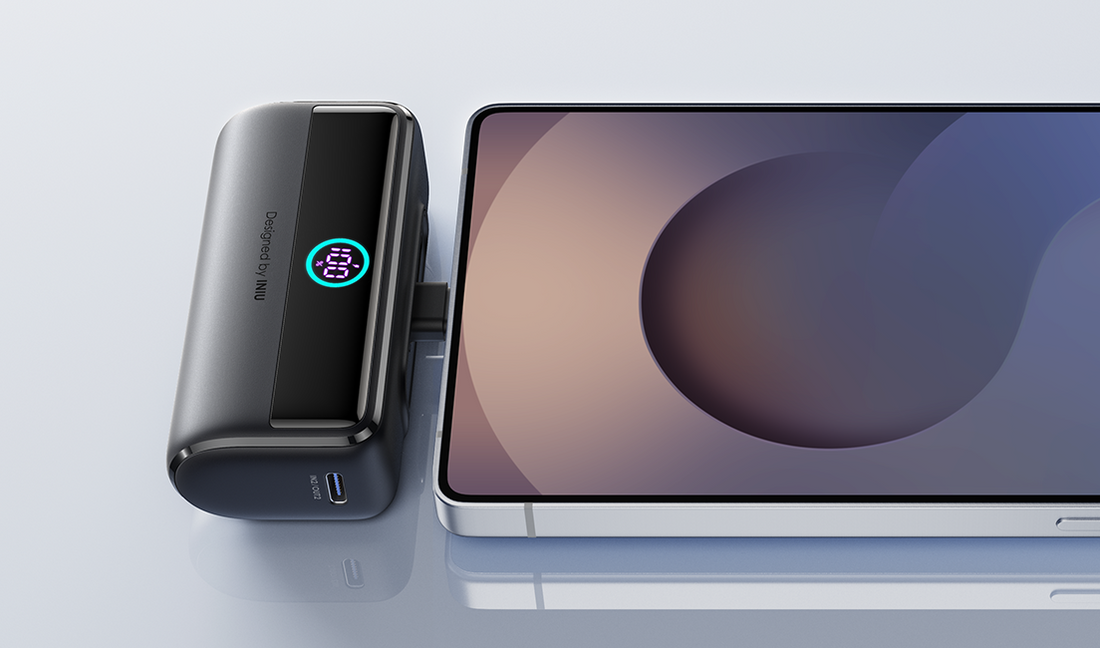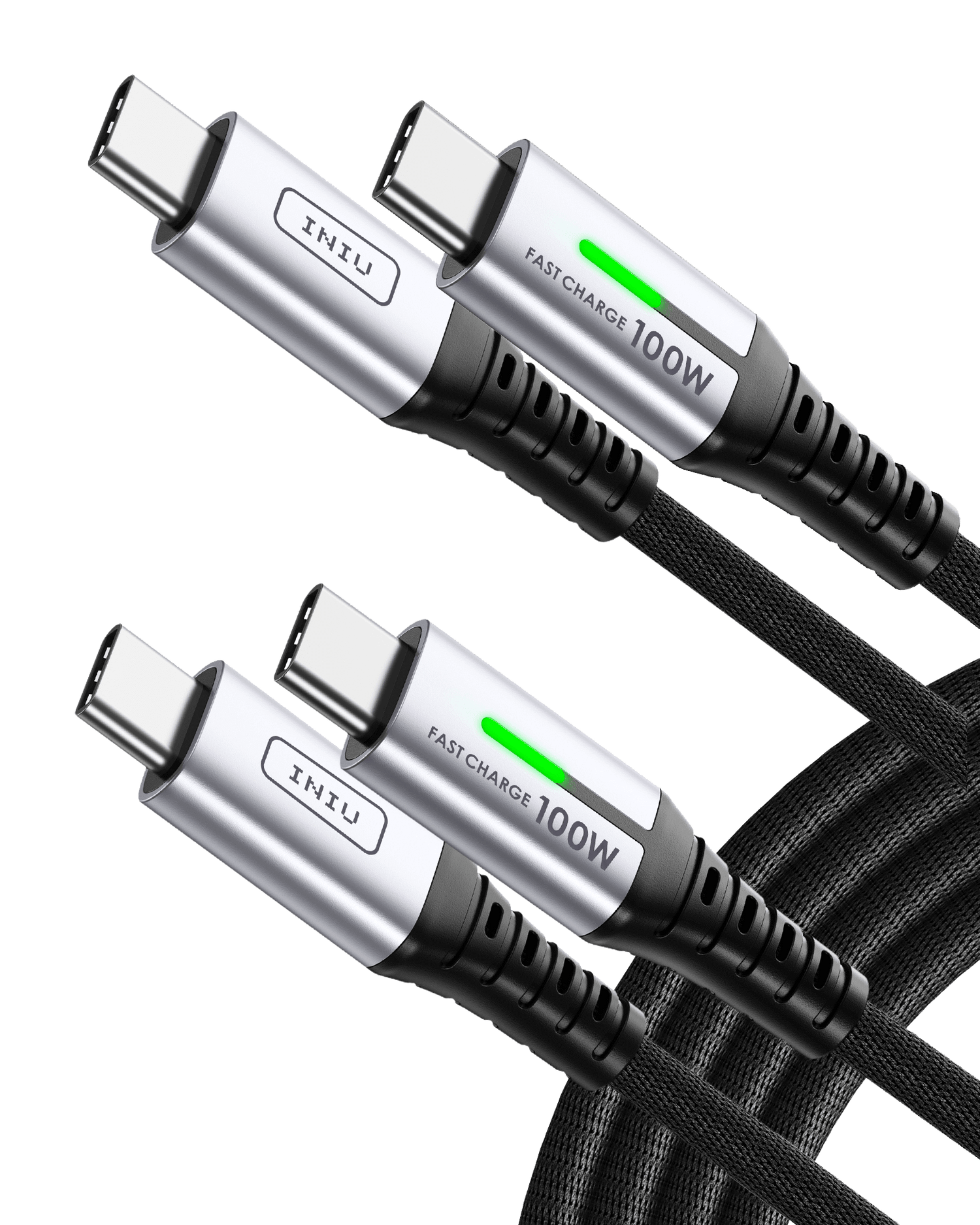The question of whether to charge your phone overnight is a common one. Many of us plug in our devices before bed, hoping for a full battery by morning. Yet, we often hear warnings about damaging the battery or shortening its lifespan. This article will examine the common myths surrounding overnight charging. We will look at what actually happens when your phone is plugged in for hours and provide clear, practical advice to keep your battery healthy for as long as possible.
Myth 1: Overcharging Your Phone Overnight Damages the Battery
Many people worry that leaving a phone plugged in all night will overload its battery. This concern comes from experiences with older technologies, but modern devices operate differently.
Your smartphone is quite intelligent. It contains a dedicated protection circuit, often called a Battery Management System (BMS). This system acts as a safety guard for your battery. Once the battery's charge level reaches 100%, the BMS automatically cuts off the electricity from the phone charger. It is not possible to force more power into a full battery. The device simply stops accepting a charge, so the idea of "overloading" it like an overfilled cup is not accurate for today's phones.
Myth 2: Charging Overnight Reduces Battery Lifespan
This popular belief is more complex than a simple yes or no. The long duration of an overnight charge is not the direct problem. Instead, certain effects related to this habit can contribute to battery aging over time.
When your phone sits at 100% while connected to a power source, it might use tiny amounts of power for background tasks. The charger then provides small "trickle charges" to bring the battery back to 100%. This constant topping-off can generate a small but steady amount of heat. While the effect of a single night is minimal, the cumulative impact of heat over hundreds of nights can contribute to the gradual degradation of the battery's health.
The Real Reason Overnight Charging Can Be Harmful: The "Full Charge Stress"
The true risk to your battery's long-term health is not the duration of charging. The real issue is the extended time it spends at a 100% charge level. This condition creates what battery scientists call "high voltage stress".
Think of a fully charged lithium-ion battery as a tightly stretched rubber band. Holding it in that high-tension state for hours puts continuous stress on its internal chemical components. This stress accelerates the degradation of the battery, permanently reducing its ability to hold a charge. For optimal longevity, experts recommend keeping your battery's charge level between 20% and 80% as much as possible. This lower-stress range helps the battery last much longer.

3 Common Mistakes That Shorten Your Battery's Lifespan
You can charge your phone overnight without causing unnecessary harm. The key is to avoid a few common mistakes that accelerate battery aging, primarily through heat and stress.
Mistake 1: Placing Your Phone on Insulating Surfaces
The location where you charge your phone matters immensely. Placing a charging phone on a soft, insulating surface like a bed, a sofa, or under a pillow is a significant mistake. These surfaces trap the heat that is naturally generated during charging. Heat is a primary enemy of lithium-ion batteries and causes permanent capacity loss. A phone that gets too warm while charging will see its battery degrade much faster. Always choose a cool, hard, and flat surface for charging.
Mistake 2: Using Counterfeit or Damaged Chargers
Using a cheap, uncertified phone charger or a frayed charging cable is a serious risk. These products often lack the sophisticated safety circuits found in manufacturer-approved accessories. Without proper voltage and temperature regulation, they can send unstable power to your device, potentially damaging the phone's sensitive charging port or the battery itself. A counterfeit iphone charger cable, for example, can lack the protective chips that guard against power surges and overheating, posing a fire hazard.
Mistake 3: Ignoring Your Phone's Smart Charging Features
Nearly all modern smartphones include a feature designed specifically to address the problem of overnight charging stress. These features, often called "Optimized Battery Charging" or something similar, learn your daily routine. The software charges the phone to 80% and then intelligently pauses. It will only resume to complete the final 20% just before your typical wake-up time. Failing to activate this powerful, free tool means you are missing the easiest and most effective way to protect your battery's health during overnight charging.
The Smart Overnight Charging Playbook: 3 Simple Steps
Protecting your phone's battery does not require a lot of effort. Following a few simple steps for your overnight charging routine can have a major positive impact on its lifespan.
Step 1: Create a Cooler Charging Environment
Managing heat is a key factor in extending your battery’s life. A phone's battery degrades faster when exposed to temperatures above 95°F (35°C). A practical step is to always place your phone on a hard, flat surface that allows for air circulation, like a desk or nightstand. If you notice your phone getting warm, removing its case before charging can help dissipate heat more effectively, especially if you use a wireless charger, which can generate more heat than a cable.
Step 2: Choose Quality Charging Accessories
The quality of your phone charger and charging cable directly impacts battery health and safety. For all charging scenarios, but especially for overnight use, use certified accessories from a reputable brand. High-quality chargers, particularly those with GaN technology, are designed with advanced thermal management to keep temperatures low, which is crucial for battery longevity. When buying a new iPhone charger cable, look for the "MFi" (Made for iPhone) badge on the packaging to confirm it is certified and includes the necessary internal safety chips to protect your device.
Step 3: Enable Smart Charging Features
Your phone has powerful software tools to manage battery health automatically. The "Optimized Battery Charging" feature learns your daily routine, charges the battery to 80%, and then waits to complete the final 20% just before you typically wake up. This strategy dramatically reduces the time the battery spends under high-voltage stress at 100%. If your schedule is unpredictable, making this feature less effective, a smart plug offers a great alternative. You can program the plug to turn off a few hours after you go to bed, ensuring the phone is charged sufficiently without leaving it at 100% all night.
The Verdict: Should You Charge Your Phone Overnight?
Yes, you can absolutely charge your phone overnight. Modern phones are designed with safety systems to prevent immediate damage from "overcharging." The key to preserving long-term battery health is to charge smartly. Use certified equipment, place your phone on a cool and hard surface, and, most importantly, enable your phone's optimized charging feature. These simple habits will protect your investment.
FAQs About Charging Your Phone Overnight
Q1: Is a wireless charger better than a cable for overnight charging?
A: Both a wireless charger and a wired charger are safe for overnight use, provided they are high-quality and certified. A slow wireless charger might be a good option because it's more convenient to grab your phone during the night without fumbling for a cable. For users with multiple Apple devices, a 3-in-1 wireless charging station is especially helpful; it keeps everything in one place and reduces clutter. The most important factor for battery health is minimizing heat, so a lower-power, cooler charging method is always preferable for the long hours of an overnight charge.
Q2: Should I let my phone battery die completely before charging?
A: No, that is a myth that applies to older, nickel-based battery technologies. For the modern lithium-ion batteries in smartphones, it is actually harmful to let them discharge completely to 0%. This deep discharge puts significant stress on the battery. It is much better for the battery's lifespan to perform partial charges. Ideally, you should try to keep the charge level above 20%.
Q3: Does fast charging damage my battery?
A: Fast charging does not inherently damage your battery, but the key is to use a high-quality, certified charger. All fast chargers produce more heat than standard chargers, and heat is a primary cause of battery degradation. However, a reputable fast charger—such as one utilizing GaN (Gallium Nitride) technology—is designed with advanced safety features and thermal management to control this heat. By using a certified, quality fast charger, you can safely get a quick power boost without significantly impacting your battery's lifespan. The quality of the charger matters far more than the charging speed itself.




